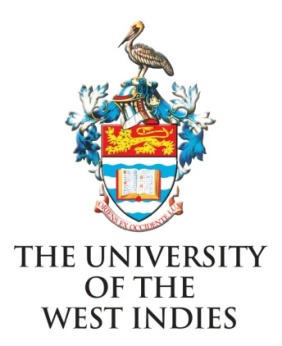The head of Barbados’ leading research institution has no objections to the questions posed in a controversial survey that quizzed students on sensitive issues, although he acknowledged that the right processes were not followed in getting children to take the test.
And Professor Clive Landis, the Principal and Pro-Vice Chancellor of the University of the West Indies (UWI), Cave Hill Campus has offered the tertiary institution’s assistance to Government in setting up an ethics review committee to deal with similar matters in the future.
Public debate rages on over the survey administered by the Inter-American Development Bank (IDB), as part of a wider computer science project, that questioned 733 first-form students from five secondary schools about sexuality, gender identity, substance use, among other issues, without parental consent.
Although both the Ministry of Education and the IDB have apologised for the inclusion of the questions which parents, child advocates and other interest groups felt were intrusive and inappropriate, Professor Landis told Barbados TODAY that as far as he was concerned, there was nothing unusual about the contents of the survey.
“There is nothing wrong with the questions asked per se. It is that it didn’t go through all the right processes. There are very few issues that are so taboo that you cannot research them, but one must go through the right processes, have the right informed consent, have the right consultations and it has to be a very structured approach. This is governed by international norms,” he said.
The university principal said research, such as what was being done through the IDB survey, helped authorities to understand issues and make appropriate evidence-based decisions.
“If you do not do the research on your own population you cannot depend on imported research in matters which are very contextual to the environment you are in. You must do your own research so you can understand the issues in your population and you can make decisions based on evidence. Research is fundamental,” he insisted.
“If I have a concern, it would be that people would shy away from participating in surveys such as this.”
It was against that background that Professor Landis said the Cave Hill Campus stood ready to assist the Ministry of Education in establishing an ethics review committee.
“Research must always be conducted in an ethical way and for that you require what is known as an ethical review board to go through every single research proposal,” he said.
After the public outcry that followed revelation of the controversial survey, Prime Minister Mia Mottley said she had asked the Ministry of Education to establish an ethics review committee to help manage and govern the administration of surveys in a more effective way to “make sure that those things that you go into schools to talk to or survey, with respect to children, pass a minimum threshold test”.
“I think there is sort of a universal belief that things need to be done in a different way going forward, and the university has a lot of experience in this area,” Professor Landis told Barbados TODAY.
“I am a great believer in having very strong ethical review boards and making that a very routine part of the whole research process which we will fully support in any way we can.”
Making reference to the UWI’s Institutional Review Board (IRB) from which all university research must get approval, Landis added: “We have strengthened our own IRB process. It now conforms to all of the international standards and we would be very happy to share everything we know. We would be very willing to support the Ministry of Education in setting up an ethical review board of their own.”
“When you are dealing with students, of course, the informed consent process means that the consent comes from the responsible adult and then assent from the student that they understand what the research is about and that they willingly participate. These would really be bread-and-butter issues for our university and we would be very, very pleased to share all of the expertise that we have to strengthen IRBs in the country,” he added.
Professor Landis noted that it was not standard procedure for the Ministry of Education to reach out to the UWI when conducting research in the school system, even though the university was always willing to assist.










